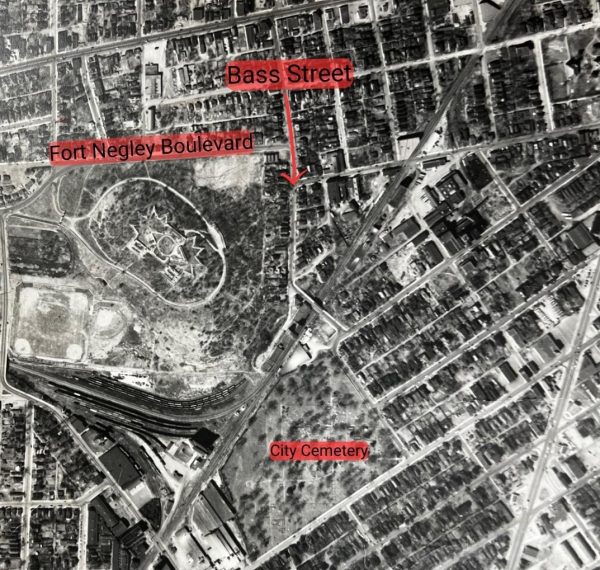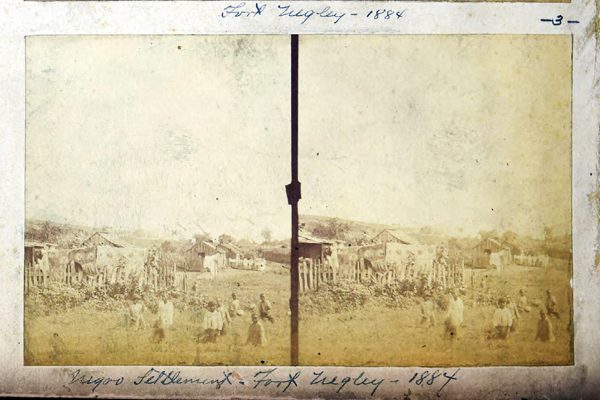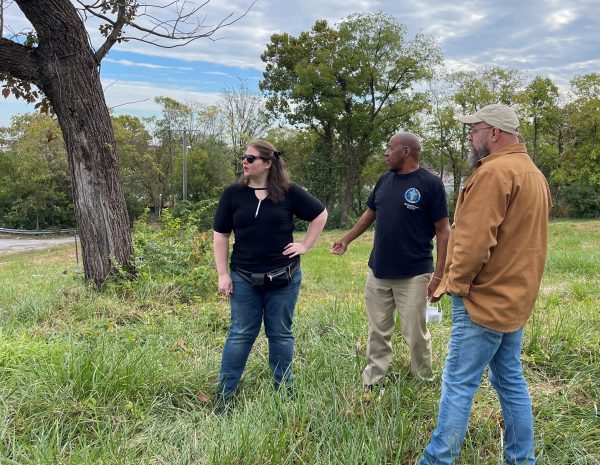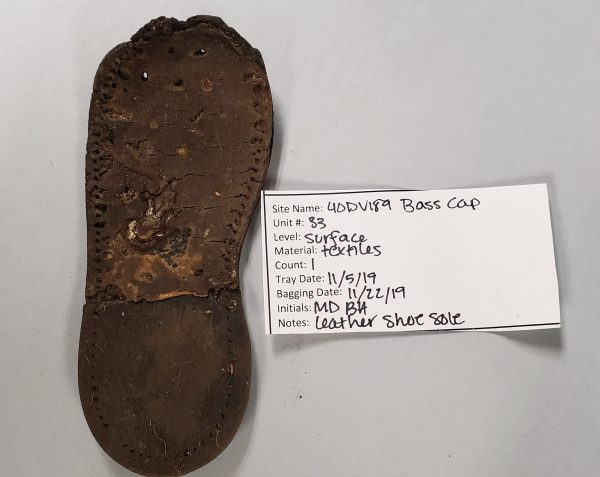A National Endowment for the Humanities grant awarded to Vanderbilt’s Angela Sutton, assistant dean for graduate education and strategic initiatives in the College of Arts and Science, will help fund the excavation of a historic Nashville neighborhood and a collection of the oral histories of the neighborhood’s descendants. The Bass Street neighborhood, founded by Black Civil War veterans, was demolished about 60 years ago.

On a hill two miles south of downtown Nashville, the remnants of Fort Negley—which was built by formerly enslaved and free Black people—are a reminder of the American Civil War and the monumental effort put forth to build the largest inland fort of that era. After the war, those same laborers and Civil War veterans built a vibrant Reconstruction community on Bass Street, at the base of Fort Negley. After six generations, the community’s rich history was lost when the neighborhood was bulldozed to make way for Nashville’s new Interstate 65.

Sutton has been awarded a $150,000 grant from the NEH to collect the oral histories of the descendants of Bass Street. The project, titled “Descendant-led Excavation at the Reconstruction-Era Black Civil War Veteran Community at Bass Street, Fort Negley Park,” aims to bring the stories and relics of this vanished community to light.
“Angela is undertaking critical work to preserve the history of Black communities in Nashville,” Vice Provost for Research and Innovation Padma Raghavan said. “It is a privilege for my team to be able to support faculty from across all schools, colleges and disciplines in pursuing meaningful research, scholarship and innovation opportunities like this one. Congratulations, Angela!”
The project is a collaboration between Vanderbilt and Middle Tennessee State University’s archaeologists Andrew Wyatt and Clélie Cottle Peacock, co-directors of the Bass Street Community Archaeology Project. It expands on the Fort Negley Descendants Project and the Builders and Defenders Database. The project will interview people who lived on Bass Street as young children and encourage them to help direct archaeological excavations to search for lost artifacts.

The insights gained from the excavations and oral histories will enrich the understanding of this important chapter in Nashville’s history and the role that the formerly enslaved and Civil War veterans played in shaping the modern city. “We’ll better know how Black descendants of the Civil War provided each other the right to citizenship, community and equality when the federal government didn’t follow through on promises it made,” Sutton said.
The original community was held together by the Bass Street Baptist Church. “One of the first things the veterans did was pool their money to build this church,” Sutton said. It served not only as the spiritual base for the community but also as the home base for shared resources.

Bass Street Baptist Church moved twice after the community was dismantled; it now is in north Nashville on Brick Church Pike. “We invited the pastor, Daryl Thompson Sr., of the current church to the site during a dig. He brought some congregation members who attended the original church as children. With this grant, we will be able to interview more of this population,” Sutton added.
Most of the grant will be used to fund continued excavation. Three dig trenches, suggested by the Bass Street descendants, are planned. The money will also finance continued consultation with Jeneene Blackman, CEO of the African American Cultural Alliance and a descendant of Bass Street.

Sutton is writing a book about Fort Negley that includes a chapter on the Bass Street community. She said project leaders are digitally cataloging artifacts and working to determine where the physical artifacts could be displayed in the future. There’s discussion in Fort Negley Park’s Master Plan about possible expansion of the Fort Negley visitor center, which is owned by the city, to include a Bass Street exhibit.
The visitor center has scheduled two talks about the Bass Street community:
- May 20: Connie Lopez-Fink will present “Bass Street Community, Not Forgotten: Teaching Middle Schoolers about Fort Negley’s Reconstruction-era Neighborhood”
- June 10: Clélie Cottle Peacock will present “They Came Down from the Hill and Built a Church: Artifacts from the Bass Street Baptist Church Historic Site at Fort Negley”
Research Development and Support identified this NEH opportunity as one that fit well with Sutton’s research and forwarded the call for proposals to her. Research Development and Support offers proposal development assistance for private (foundations) and federally funded opportunities. Services include searches for sponsors, coordination and team building for proposals of any size, content development and draft review. RDS further supports faculty by building relationships with external sponsors, hosting workshops and providing guides and language for common proposal requirements. RDS is in the Office of the Vice Provost for Research and Innovation. To learn more about RDS or request services, email rds@vanderbilt.edu.